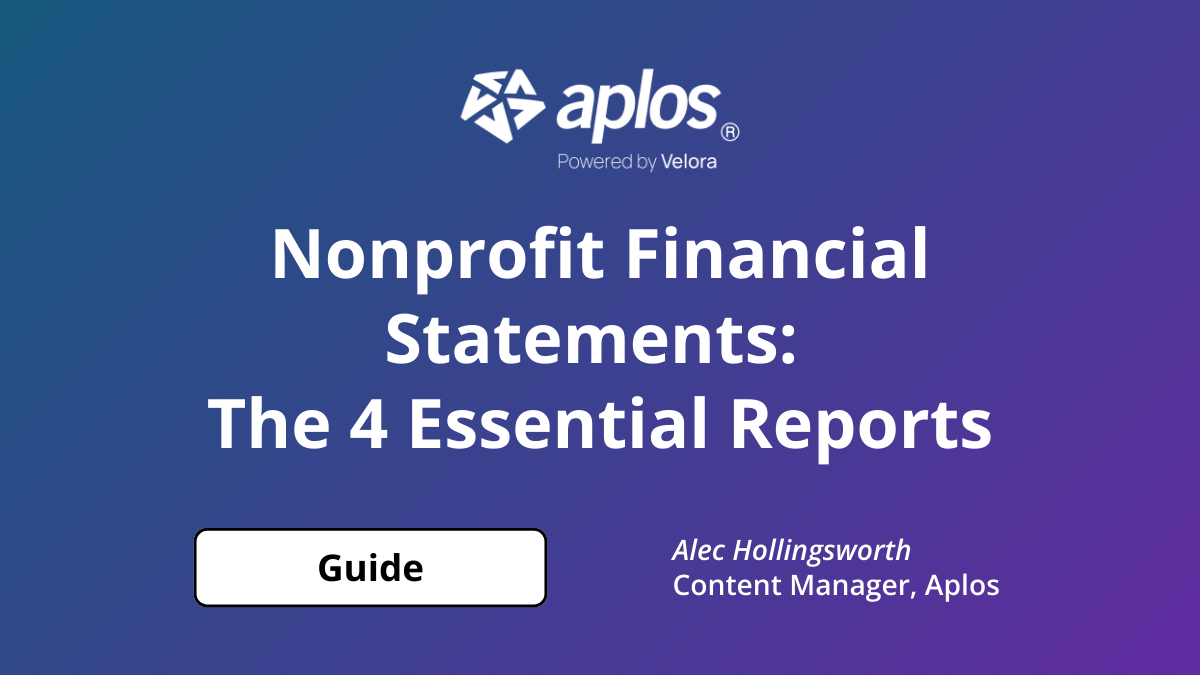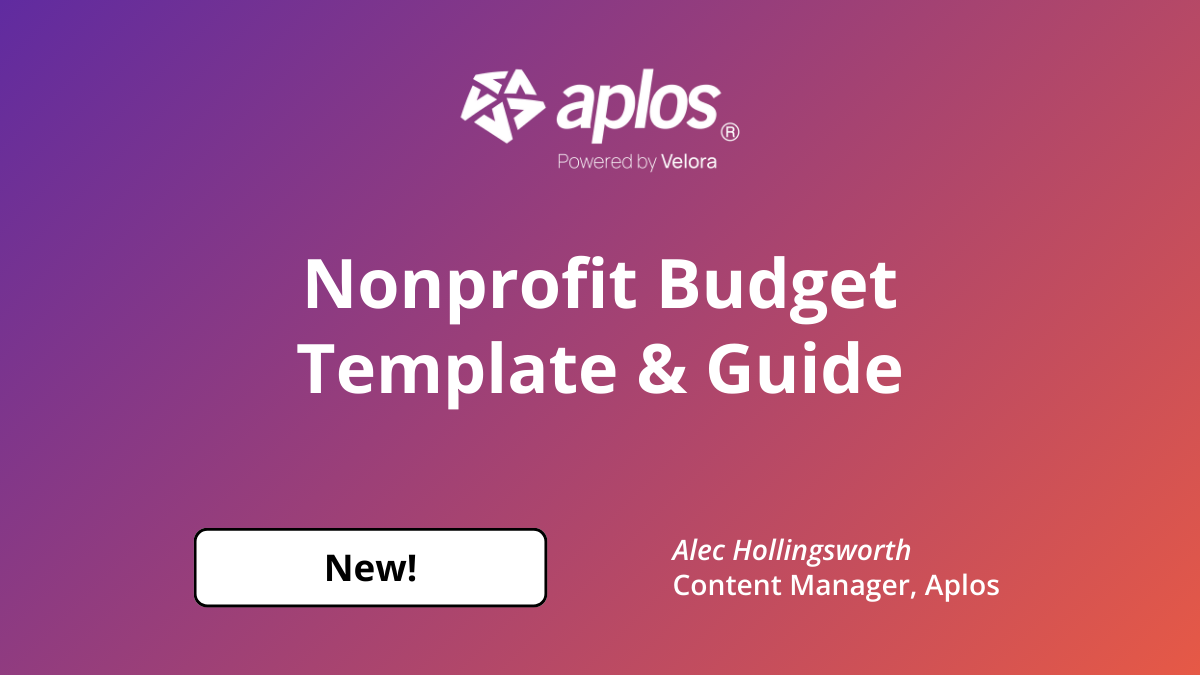
Human Resources in a Nonprofit Business Plan

How to Write a Nonprofit Business Plan: Lesson 7
Your nonprofit business plan should really be coming together. It can be difficult to create a document as long and tedious as a business plan, but it will all be worth it in the end. Keep your passion and cause in mind as motivation to complete the work needed to be successful. Now that you’ve finished identifying your nonprofit’s leaders, this guide will help you address other basics of human resources that need to be squared away in order for the nonprofit to be effective.
The Importance of Human Resource Planning
For most organizations, staff and staff-related expenses make up the highest percentage of the annual budget. Your organization will likely have paid staff as well as volunteers who will determine the success of your nonprofit. Careful consideration and planning for current and future human resource needs will help your nonprofit succeed. There are a few things you’ll need to address in this portion of the nonprofit business plan. As you address each of them, you’ll better understand who you need and how to get them on your team.
Assessing Personnel Needs
It all starts with what you hope to accomplish with your nonprofit. You can dream as big as you like, but if you can’t execute the vision, it doesn’t matter. Think about the work that needs to be done to make your nonprofit a success. You’ve already identified the ways you’ll measure your impact. What will it take to get these things accomplished? Will you need to host fundraising events? Do you need people to serve your clients? Do you need people to answer phones or manage the finances? Should certain roles be paid? Which ones? Which roles would be great for volunteers? Identifying the tasks involved with getting the job done is step one. After that, think about what type of team member you’ll need to complete these tasks.

Organizational Structure
The organizational structure is simply a personnel map of roles, responsibilities, and authority. It identifies what types of staff or volunteer members are needed, what they are responsible for, and who they report to. Many nonprofits keep an organizational chart to help them see the structure more clearly. This chart looks similar to a family tree, but instead of identifying how people are related, it identifies chains of command, work-related responsibilities, etc. Completing the organizational chart is a big step toward implementing the vision you have for your nonprofit.
Recruiting
Once you have identified all of the staffing and volunteer needs of the nonprofit, you’ll need to create a method for recruiting people to join your team. This can be as simple as calling people in your personal network, or as in-depth as creating job announcements, posting to job boards, and taking part in recruiting events. What does that process look like for your nonprofit? For this piece, outline what you will do to recruit team members.

Screening
Once you have a list of interested people, you’ll need to screen them. Even if a person is only volunteering a few hours per week, having a healthy screening process in place can help you attract the very best. Every person in the organization matters, from the very top to the newest volunteer. Here are a few things to do during the screening process:
- Use an application that covers all pertinent areas of an applicant’s background
- Make sure the screening process helps identify all relevant skills, aptitudes, knowledge, and experience
- Try to confirm that the applicant shares a passion for the cause, and doesn’t just need a job
- Objectively evaluate each person based on the human resource needs you’ve identified
Selecting and Hiring
Once you have identified great people in your screening process, you’ll want to hire them. It’s really important for you to set the culture from the beginning. This actually starts with the way you recruit people, but it is emphasized throughout the hiring process.
Whether paid staff member or volunteer, each person will contribute in meaningful ways to the success of the nonprofit. Culture comes from the top and starts at the beginning. What do you want it to feel like at your nonprofit? What things will you emphasize? Will fun and laughter be a value? Will hard work and odd hours be part of your process? How will you emphasize the culture you want for your nonprofit? Build those things into your hiring process. Summarize them in this section. This can be anything from holding interviews at your service location to telling stories about successful ways your nonprofit addresses needs.
Introducing New Employees and Volunteers to the Organization
Policies, employee manuals, and orientations should not be used as weapons to punish employees or volunteers for getting out of line. Rather, they are tools for setting high expectations, empowering your people, and helping them succeed at what they are doing for the nonprofit. The better your orientation program, the more momentum you give folks who are new to the team.
Your orientation program can be as simple as having new people shadow others on the team, or as advanced as having training classes, video tutorials, and other produced items geared toward helping a new person learn the ropes. Again, the emphasis should not only be on what the employee or volunteer will be doing, but why they are doing it. The culture and mantra of your organization can be embedded in all of this. Will you have an employee manual? Will you have onsite training? What does your employee and volunteer orientation look like? How will you implement it? Give details about those things here to complete this section.

Compensation and Development
After an employee is hired, or a volunteer joins the team, the journey isn’t over. It’s just beginning. Assuming you have chosen wisely, your employees and volunteers are the most valuable and vital resources for many nonprofits. It’s extremely important to invest in them since they will be the ones primarily responsible for doing the work of the cause. How can you enhance your people’s work experience?
Whether they are an employee or volunteer, there are meaningful things you can do to keep people motivated and help them develop so they get better at working for the cause. How will you do this? Here’s a tip: raising hourly wages is not the best way to keep an employee motivated. Will you offer fun, flexibility, and freedom at work? Many people say they like working with organizations that offer these things. What does that look like in your organization? Will you provide other unique benefits, like laundry service, car washing, or something else?
Dollar for dollar, these types of things tend to pay off by keeping employees happy. You don’t have to spend money to add value. You could have local experts come in to teach your employees and volunteers about something important to them. Or you could simply empower your people to come up with and manage projects they see as important and align with your cause. How will you set your nonprofit apart in this area?
Additional Resources
Looking for volunteers? Volunteer Match can help. Create an account for your nonprofit, and shine some light on your organization to attract local volunteers. It’s a great way to gain exposure and grab local volunteers’ attention. If you want to find volunteers on your own, check out this quick video to discover who is volunteering out there. This information will give you some quick insight for what demographic to approach for support.
Moving Forward
Thinking about employee and volunteer systems can be daunting. But perhaps the scariest piece of the nonprofit business plan for most people is the financials section. Our next lesson will take the fear out of an important aspect of any business plan. We’ll go into some very simple methods for understanding the business side of things so you’ll be confident in knowing your nonprofit financially has what it takes to get the job done.

Our comprehensive closeout services start at $399 per month that needs to be reconciled. Sign up before Jan 1st and pay just $199.50 per month!
Copyright © 2025 Aplos Software, LLC. All rights reserved.
Aplos partners with Stripe Payments Company for money transmission services and account services with funds held at Fifth Third Bank N.A., Member FDIC.
Copyright © 2024 Aplos Software, LLC. All rights reserved.
Aplos partners with Stripe Payments Company for money transmission services and account services with funds held at Fifth Third Bank N.A., Member FDIC.



.png)



